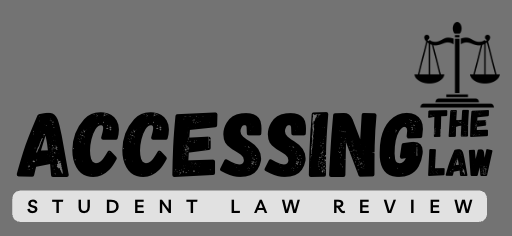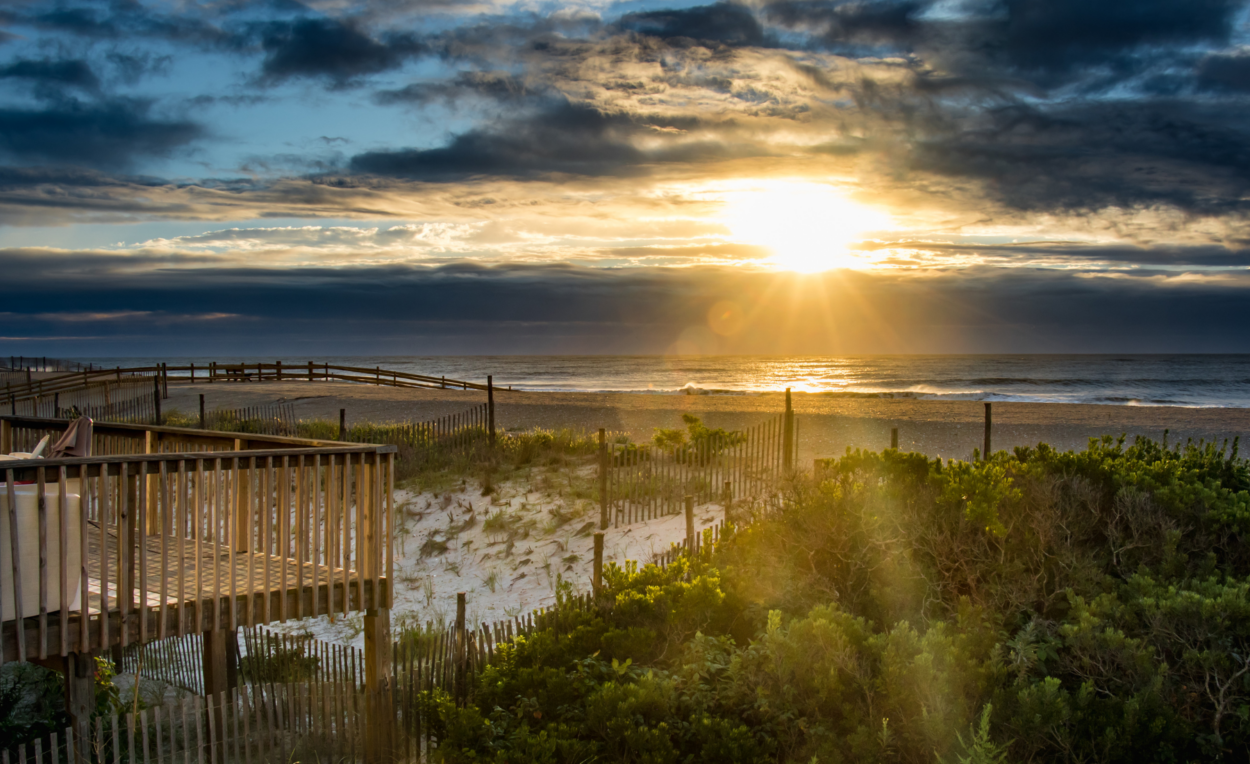Environmental Law: Save Long Beach Island v. U.S Department of Commerce
Written by Thomas Howald, Ava Bob, and Jakob Tawney
Edited by Erin Riley, Liv Moreno, and Anna Ramesh
Background
The case Save Long Beach Island v. U.S. Department of Commerce centers on a legal challenge to offshore wind development off the coast of New Jersey. The plaintiff, Save Long Beach Island, is an environmental advocacy group opposing federal decisions that permit the construction of wind farms in the region. The lawsuit specifically alleges that the U.S. Department of Commerce failed to conduct adequate environmental assessments and therefore violated laws designed to protect marine ecosystems. The case reflects broader tensions between renewable energy expansion and conservation efforts, particularly as offshore wind projects become a key component of the federal government's clean energy strategy. As we look for clean and renewable energy to become more commonly used as opposed to the current use of oil and other nonrenewable resources.
This legal challenge emerges amid growing concerns over the environmental impact of large-scale wind energy projects. Conservation groups, including Save Long Beach Island, have raised alarms about potential harm to marine life, particularly the endangered species that inhabit the coastal waters near the proposed wind farms. The plaintiffs contend that the government's approval process lacked sufficient environmental review under the National Environmental Policy Act (NEPA) and the Endangered Species Act (ESA), both of which mandate rigorous assessments of projects that could impact wildlife. Similar legal battles have played out in recent years, as environmental organizations attempt to hold federal agencies accountable for their role in approving industrial projects that interact with fragile environmental ecosystems. Like the ocean off the New Jersey Coast.
Precedent/Similar Cases
In the past, similar cases have surfaced involving environmental groups challenging federal decisions to protect wildlife. In 2017, the Turtle Island Restoration Network, an organization determined to protect endangered marine life, sued the National Marine Fisheries Service (NMFS), a subset of the U.S. Department of Commerce, for issuing a statement that allowed a Hawaiian fishery to harm endangered sea turtles under specific conditions. The Turtle Island Restoration Network alleged this statement violated the Endangered Species Act (ESA), and the case went to a federal district court in Northern California. The court soon declared the previously issued statement from the NMFS as invalid, siding with the plaintiff (The Turtle Island Restoration Network).
Although both the Turtle Island v. NMFS and the Save Long Beach Island v. U.S. Department of Commerce case went to federal district courts, their differing outcomes are due to the evaluation of the government's role in issuing environmental protections, rather than the extent of the harm itself. The Turtle Island case focused on direct measurable consequences to endangered marine life immediately following the statement issued by the NMFS, whereas in Save Long Beach Island, the plaintiff filed the suit based on indirect harm that lacked sufficient environmental assessments to prove governmental fault. These contradicting verdicts reflect differing judicial interpretations of the scope of federal responsibility in protecting the environment.
Effect of Save Long Beach Island v. US Department of Commerce
The decision in Save Long Beach Island v. U.S. Department of Commerce sets an important precedent for environmental law and renewable energy development. By dismissing the case due to lack of standing, the court made it clear that conservation groups will have a harder time challenging offshore wind projects unless they can prove a direct and personal harm. This ruling may limit future legal opposition to similar projects, giving developers more confidence that approved permits and environmental assessments will hold up in court. At the same time, it raises concerns about the ability of advocacy groups to hold government agencies accountable when it comes to protecting marine life. As the U.S. pushes forward with offshore wind as part of its clean energy agenda, this case highlights the growing tension between climate action and wildlife conservation—a debate that has remained relevant due to increasing popularity of environmental movements and the government's participation.
Though this ruling is still fresh, it has already added fuel to the debate over offshore wind farms. Supporters of renewable energy see it as a win, arguing that lawsuits like this one slow down much-needed progress on climate solutions. Meanwhile, opponents—mainly environmentalists and coastal communities—are frustrated, feeling that federal agencies and developers now have too much freedom to move forward without fully addressing the potential impact on marine ecosystems. Some advocacy groups are shifting their focus from lawsuits to lobbying for stricter regulations and more transparency in the approval process. The case also reflects a broader legal trend of courts tightening the rules on who can sue over environmental issues, making it harder for nonprofits and concerned citizens to challenge large-scale environmental projects.
This case is part of a larger legal pattern where courts are making it more difficult for environmental groups to challenge government-approved projects. Unless laws around standing change, future legal challenges will likely face similar roadblocks. For groups concerned about the environmental impact of offshore wind farms, the best path forward might not be through the courts, but through policy change and public advocacy.
Works Cited
Goldberg, Jacob, Seth Hilton, and Jeremy Sacks. "Law of Wind: Considerations in Wind Energy Projects:
Navigating Legal Challenges." Stoel Rives LLP, 2024. https://www.stoel.com/insights/reports/the-law-of-wind/litigation.
"Save Long Beach Island v. U.S. Department of Commerce." Climate Change Litigation, January 10, 2025.
https://climatecasechart.com/case/save-long-beach-island-v-us-department-of-commerce-2/.
Storrow, Benjamin. "Why Vineyard Wind Is a Legal Test Case for US Clean Energy." E&E News by POLITICO,
January 26, 2024. https://www.eenews.net/articles/why-vineyard-wind-is-a-legal-test-case-for-us-clean-energy/.
Turtle Island Restoration Network v. U.S. Department of Commerce, No. undefined, (D. Haw. Aug. 23, 2013),
accessed March 5, 2025, https://casetext.com/case/turtle-island-restoration-network-v-us-dept-of-commerce-1.

